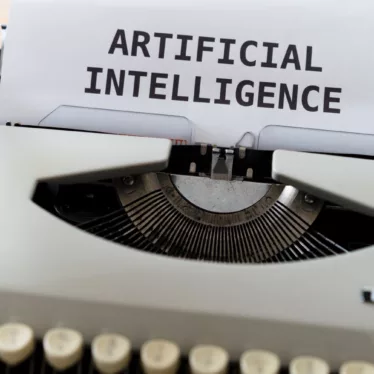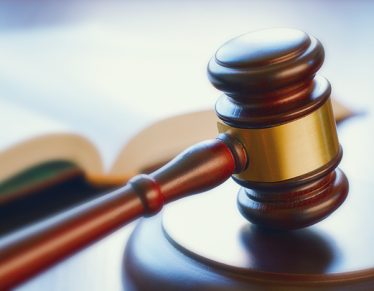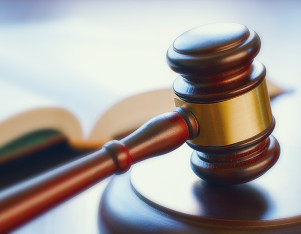Artificial intelligence (“AI”) is not entirely foreign to the legal profession. AI-powered legal research databases, eDiscovery automation, and juror intelligence services are just a few examples of how lawyers have engaged AI over the past several decades to boost efficiency and streamline routine, high-volume tasks. As AI maintains a fixed presence in the practice of law, lawyers’ professional and ethical obligations are continuously challenged. One form of AI that has posed significant ethical risks since its initial launch in November of 2022 is OpenAI’s language model chatbot, ChatGPT. The chatbot generates human-like responses to queries input by a user, which raises a number of concerns under the ABA Model Rules of Professional Conduct.
Model Rule 1.1 requires that lawyers provide competent representation that encompasses “the legal knowledge, skill, thoroughness and preparation reasonably necessary for the representation.”[1] Compliance with this rule becomes problematic for lawyers relying exclusively on ChatGPT because the AI-generated responses are based on the model’s study of text data from a collection of indefinite sources, including user inquiries. Such responses therefore are not the product of legal knowledge, skill and thoroughness.
Comment 8 to Model Rule 1.1 also requires lawyers to keep abreast of the benefits and risks associated with relevant technology.[2] While Rhode Island’s Model Rule 1.1 does not include comment 8, the state would likely construe a lawyers’ obligation to provide competent representation as including an obligation to be familiar with technology. ChatGPT presents a significant risk to lawyers aiming to provide competent representation considering the chatbot “may in some situations result in incorrect Output that does not accurately reflect real people, places, or facts.”[3] For example, a Manhattan federal judge recently sanctioned a lawyer after his submission to the court was replete with citations to nonexistent cases generated by ChatGPT.[4] In this instance, the convenience and time-saving benefits of ChatGPT were grossly outweighed by the risk of receiving inaccurate and blatantly false information.
Additionally, when using ChatGPT or any AI model, issues of security and confidentiality arise. Model Rule 1.6 requires that lawyers maintain client confidentiality and “make reasonable efforts to prevent the inadvertent or unauthorized disclosure of, or unauthorized access to, information relating to the representation of a client.”[5] OpenAI’s privacy policy makes clear that the company saves each user’s personal and communication information that is input into the system.[6] Significantly, OpenAI may provide that information to third parties without prior notice to the user.[7] Absent assurances of confidentiality, prudence dictates that lawyers do not share sensitive information with the chatbot to remain in compliance with the ABA Model Rules.
On March 14, 2023, Open AI launched GPT-4 that is said to be “more reliable, creative, and able to handle much more nuanced instructions” than its predecessor, GPT-3.5.[8] Open AI tested the model using numerous academic and professional benchmarks, including the Uniform Bar Exam. GPT-4 scored in the 90th percentile of bar exam takers.[9] Having not conducted any specific training for the exam, GPT-4 represents a marked improvement from its predecessor that scored in the 10th percentile of bar exam takers.[10] Nonetheless, Open AI admits that the technology is far from perfect and less capable than humans in real-world scenarios. [11]
Ultimately, while lawyers cannot ignore the inevitable advances in generative AI, they should examine ChatGPT and AI system outputs with a critical eye and think twice before compromising their professional judgment or legal expertise for the convenience of AI.
[1] Mod. Rules Prof. Cond. § 1.1
[2] Id. cmt. 8
[3] OpenAI’s Terms of Use can be found here: https://openai.com/policies/terms-of-use (updated March 24, 2023)
[4] Molly Bohannon, Lawyer Used ChatGPT In Court—And Cited Fake Cases. A Judge Is Considering Sanctions, Forbes (June 8, 2023) https://www.forbes.com/sites/mollybohannon/2023/06/08/lawyer-used-chatgpt-in-court-and-cited-fake-cases-a-judge-is-considering-sanctions/?sh=7208ae577c7f
[5] Mod. Rules Prof. Cond. § 1.6
[6] OpenAI’s Privacy Policy can be found here: https://openai.com/policies/privacy-policy (updated April 27, 2023)
[7] Id.
[8] OpenAI’s GPT-4 Research Report can be found here: https://openai.com/research/gpt-4 (published March 14, 2023)
[9] Id.
[10] Id.
[11] Id.






